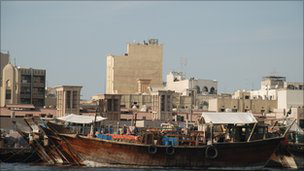
Writing in the Financial Times, Treasury Undersecretary Stuart Levey said Iranian tactics to evade sanctions included repainting or renaming ships, falsifying shipping documents and assigning vessel ownership to front companies outside Iran.
In its latest move to counter this, Friday Washington designated for sanctions three Malta-based shipping companies owned directly or indirectly by the Islamic Republic of Iran Shipping Lines (IRISL), the national carrier, he said.
“We must redouble our vigilance over both their (Iran’s) domestic shipping lines, and attempts to use third-country shippers and freight forwarders for illicit cargo,” Levey wrote in a guest column.
The U.N. Security Council imposed a fourth round of sanctions on Iran in June over a nuclear program the West suspects is aimed at developing atomic weapons, though Iran says its goals are peaceful.
The United States and the European Union have also imposed sanctions of their own on the Islamic Republic.
The sanctions blacklist dozens of Iranian military, industrial and shipping companies, tighten an arms embargo and provide for inspections of suspect cargoes to and from Iran.
“U.S. companies involved in third-country trade — as well as foreign shippers and freight forwarders doing business with the US — must be aware of their sanctions responsibilities,” Levey wrote.
“All shippers, wherever they do business, should exercise enhanced vigilance, particularly where shipments may involve Iran.”
Levey urged businesses as well as governments to put sanctions into practice. “The broader private sector is restricting business with Iran, rather than risk facilitating Iran’s illicit activities,” he wrote.
“But while private business actions are critical for sanctions to work, it is essential that governments throughout the world now ensure that new sanctions are also translated into action.”
(Reporting by Karolina Tagaris; editing by Tim Pearce)